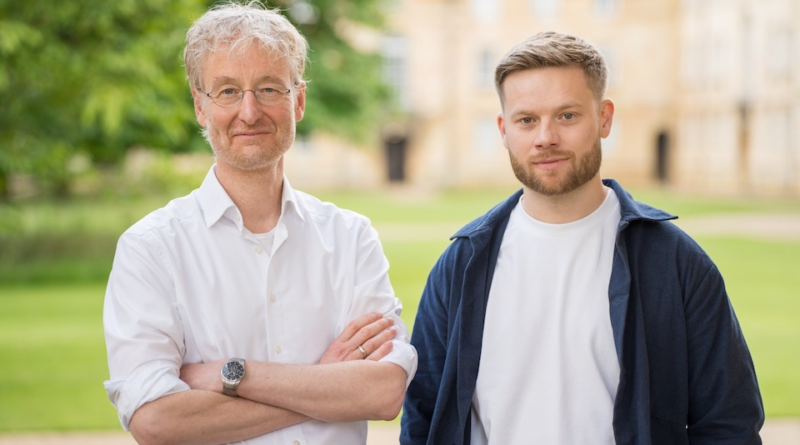CuspAI raises $30M to create a Gen-AI-driven search engine for new materials
The modern method of coming up with new materials is to make something and then use a computer to work out whether the material came out correctly. But what if you flipped that around, using generative-AI-driven software to design the material in the first place? That’s the premise behind Cambridge, U.K.-based CuspAI, which has now secured $30 million in a seed round led by Hoxton Ventures, with significant participation from Basis Set Ventures and Lightspeed Venture Partners.
As co-founder and CEO Chad Edwards put it, “We’re flipping the old process on its head and saying, ‘Well, if you can put materials or molecules in and get properties out, then why can’t you put properties in and get materials and molecules?’”
The market is dominated by players such as Schrodinger (listed on NASDAQ) and Dassault Systemes, both of which provide software tools to perform computational chemistry and material simulations.
Newer on the block is Orbital Materials, which includes part of the team behind Google’s DeepMind and has an AI-powered platform that can be used to discover materials ranging from batteries to carbon dioxide-capturing cells. It recently raised $16 million in a Series A.
“In the same way that search engines enabled the internet, we believe we’re on the cusp of a world in which you can search the very, very large space of new materials and molecules to discover new materials that have exactly the desired properties. We think we’re entering the ‘materials-on-demand’ era,” he said.
Indeed, the company says its platform functions like a search engine for materials, enabling the fast evaluation of a “vast number of novel structures.”
“Civilization has always defined itself by the materials of that time so, bronze age, stone age, etc. We think we’re going into the materials-on-demand age,” he added.
CuspAI launched only this year and seems to have its work cut out for it. However, Edwards is not exactly starting from scratch.
His co-founder is Max Welling, a professor and renowned pioneer in AI. He was also formerly the Distinguished Scientist and VP at Microsoft Research and Qualcomm, and was a professor at the University of Amsterdam. “Our AI can generate and evaluate new materials on demand. For example, you can request a material that selectively binds carbon dioxide under specified conditions — the AI then generates, evaluates and optimises the potential molecular structures that meet those exact criteria,” he said in a statement.
Edwards is a chemist who has been involved in deep tech commercialization at Google and BASF and most recently at quantum computing leader, Quantinuum.
Geoffrey Hinton, known as the “Godfather of AI,” will also serve as a board adviser.
In a statement, Hinton said: “Humanity will face many challenges in the coming decade. Some will be caused by AI while others can be solved by AI. I’ve been very impressed by CuspAI and its mission to accelerate the design process of new materials using AI to curb one of humanity’s most urgent challenges: climate change.”
An area where CuspAI thinks AI-designed materials could have a significant near-term impact is carbon capture and storage.
“We’re looking at the the design of molecular sponges that selectively absorb carbon dioxide from the air,” Edwards said. “When you heat them up, they release carbon dioxide, which you can pipe it off and make use of, or bury it underground, whatever you want to do.”
CuspAI has also partnered with Meta on its open science project to discover new materials to address climate change.
“The Fundamental AI Research (FAIR) team is looking forward to collaborating with CuspAI in their use of AI, including our OpenDAC work, to accelerate the discovery of novel DAC sorbent materials,” Yann LeCun, VP and Chief AI Scientist at Meta, said in a statement. “The world needs fast progress on affordable carbon capture, and we believe that CuspAI’s team is in an excellent position to apply AI-based materials discovery to this pressing problem.”
Other investors in the round include LocalGlobe, Northzone, Touring Capital, Giant Ventures, FJ Labs, Tiferes Ventures and Zero Prime Ventures. Angel investors, including Mehdi Ghissassi and Dorothy Chou from DeepMind, also participated.




